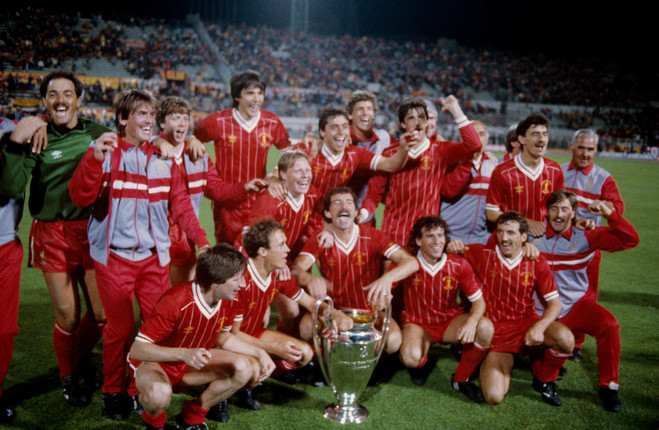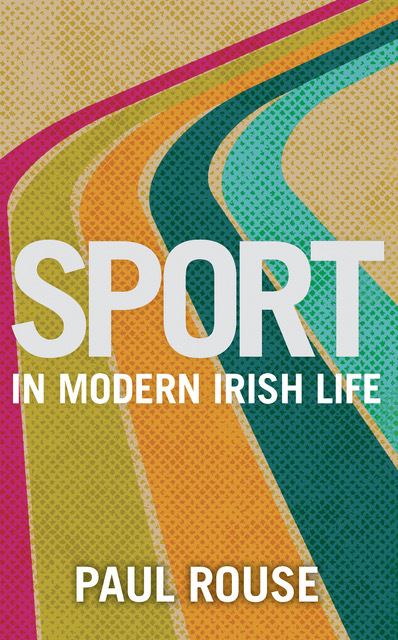BEING A SCHOOLBOY in a classroom full of Liverpool fans during the 1980s was a painful experience. It’s the kind of pain that causes scarring that never clears.
They were everywhere, sitting at every desk, sneering, superior, endlessly smug. And that is just to mention the nicer ones.
All the Mondays of that tortuous decade merge into one long and brutal recounting of another Saturday’s play where Liverpool had casually rolled over whichever pretenders stood in their way.
Dalglish. Rush. Whelan. Hansen. Lawrenson. All sickeningly brilliant. All so relentlessly successful that you could imagine them out playing pitch-and-toss with their medals against the back wall of the Kop.
Liverpool dominated the league, of course; seemed to be champions in perpetuity, and then went around Europe beating everyone while barely breaking sweat, as if on a glorious, leisurely bus tour of the continent.
Each of these successes brought the carving of freshly triumphant slogans into the soft wood of the school desks. But, of course, desks alone could never have been enough of a canvas for the lads in our class. They wrote also on the copy books and rulers and pencil cases and everything else they could find belonging to the few Manchester United supporters in the room. I had ‘LFC’ tippexed onto my schoolbag and jacket in huge letters by one particularly devout specimen. The fine job he works in now cannot disguise the monster that lurks within.
All the while, naturally, United flattered to deceive year after year, before always, always losing just when it mattered most.
A new United team would start a season well, backboned by some seriously good players – and then the couple of new players who had been introduced to turn challengers into champions would be revealed to be not nearly good enough. Or just flakey. Or both.
Off it would start again.
The worst was the 1985/6 season when United won the first ten games in a row and seemed set fair to canter to league glory. By the end of September they were nine points clear of Liverpool – at a time when a win was worth just two points.
There was solid evidence that there was no need to spare the return gloating. Indeed, it was in no way spared – rather it was mixed freely with taunts, gibes, liberal insults and a general obnoxiousness that seemed at the time to be only fair and proper.
At the beginning of October, United drew against Luton Town on their plastic pitch. They were still top at Christmas but the gap had shrunk to just two points and the inevitability of United’s doom was apparent everywhere.
In the end, Liverpool won a league and cup double. United’s star striker Mark Hughes signed for Barcelona. The Liverpool supporters in our class were truly appalling. Their taunting was relentless – there was no escape.
It wasn’t just the winning that was the problem. In an interesting book he has written on the meaning of soccer, the philosopher Simon Critchley – himself a diehard Liverpool fan, although now based in New York – wrote: ‘All my family came from Liverpool, and although there was an Evertonian wing in my mother’s family, LFC always predominated. I was raised with a fanatical devotion to LFC and a belief that my team was not just very good, but that its fans were special and its culture unique.I know how irritating this can be to fans of other teams, because LFC supporters always seem so self-righteous and to think that what happened to them happened first/better/ more intensely/more profoundly than elsewhere.’
That’s exactly the way they were. And still are.
In fairness to Critchley, he did agree immediately that such sentiments are ‘obviously completely delusional and empirically wrong’.
Why did English soccer matter so much to us in the 1980s? After all, Offaly were winning All-Irelands in football and hurling, and Tullamore CBS was a school given mostly to Gaelic football. It was played all the time and the school had good teams.
There was hurling, also, but it was dwarfed by Gaelic football.
There was also basketball and table tennis and handball, all played in a recreational way, with flexible rules (all of which included permission to hit a fella a slap, at random, the only logic seemingly needed was that the opportunity presented itself).
There was no rugby played in the school and very little talked about – except, maybe, during the Five Nations. Even then, it didn’t really matter a whole pile.
On the other hand, soccer mattered a lot. Very few actually played the game in organised teams, instead just kicking around in the schoolyard or at home in pick-up games.
But what happened on the soccer grounds of England shaped every week of the school year – and to be a Liverpool fan in those years was to live a gilded life.
The triumph of Manchester United in the Premier League era came too late. It needed to happen a decade earlier for it to have been a true gift.
By then, I had made the journey from supporter to mere sympathiser; without the context of the school classroom it just didn’t matter enough. The meaning of English soccer was to be found in the slagging.
Against that there was the pure joy of watching Liverpool become what United had once been.
They were now the team who bought the wrong players, looking always for the alchemy that would restore former glories.
They also did things that were ridiculous. The best was the wearing of the white suits to the 1996 FA Cup Final. What must it have been like to put back on that suit after losing 1–0 to an Eric Cantona volley after being bullied around the pitch by Roy Keane?
That was a grand day – but it was spoiled by not being able to go into a classroom on the Monday morning and rub it in to those who had inflicted so many years of suffering.
This extract is taken from Sport In Modern Irish Life by Paul Rouse, published by Merrion Press, available now.


